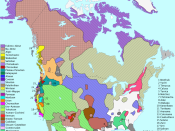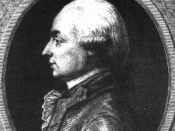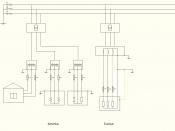What does it truly mean to declare ÃÂI am an American?ÃÂ Is it just another way to say ÃÂI am an inhabitant of America?ÃÂ If an early American immigrant had declared ÃÂI am an AmericanÃÂ what would the phrase have meant? Hector St. John de Crevecoeur, an influential writer and farmer from the late 1700s to early 1800s, wrote Letters from an American Farmer, in which he answered the grand question, ÃÂWhat is an American?ÃÂ Of the many elements and attributes of early American life as discussed by Crevecoeur, freedom, capitalism, and equality are three that truly defined what it meant to be an early American.
Early Americans were not just Europeans who lived in America. They were people who were free from Europe. Previously, European immigrants had to pay dues to their lords and church. Many had to pay heavy taxes to their governments. In America, the opposite was true.
Crevecoeur explains this here:It [America] is not composed, as in Europe, of great lords who possess everything, and of a herd of people who have nothing. Here are no aristocratic families, no courts, no kings, no bishops, no ecclesiastical dominion, no invisible power giving to a few a very visible one; no great manufacturers employing thousands, no great refinements of luxury. (23)Not only were early Americans free from Europe, but they were also free to explore the vast American expanse and homestead wherever they pleased. Crevecoeur clearly shows this here:Here man is free as he ought to be; nor is this pleasing equality so transitory as many others are. Many ages will not see the shores of our great lakes replenished with inland nations, nor the unknown bounds of North America entirely peopled. Who can tell how far it extends? Who can tell the millions of men...


